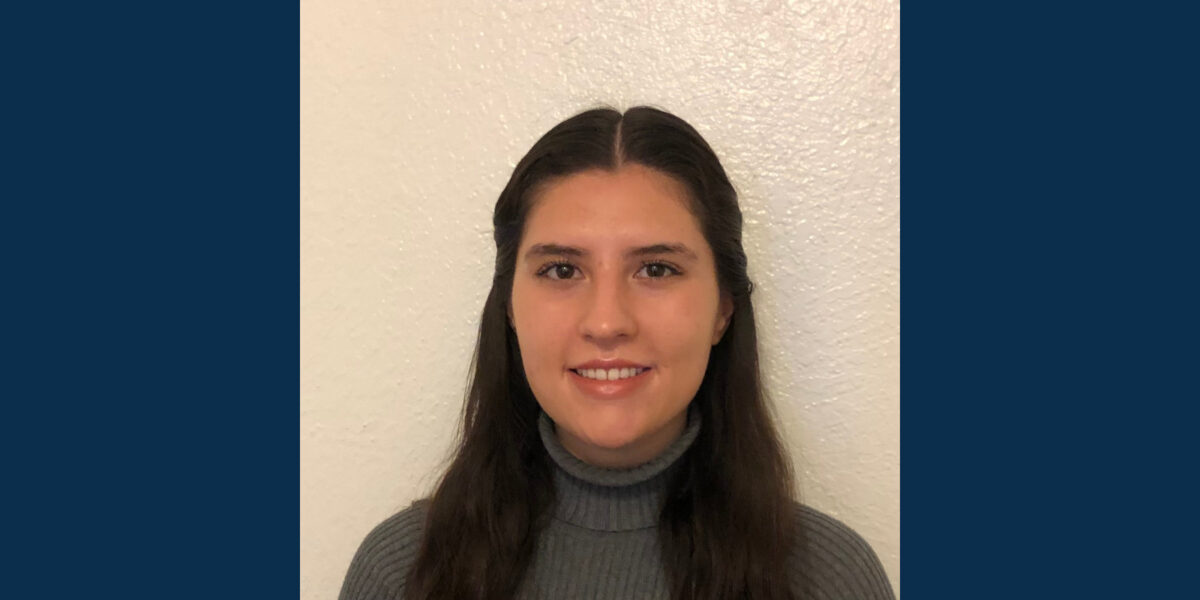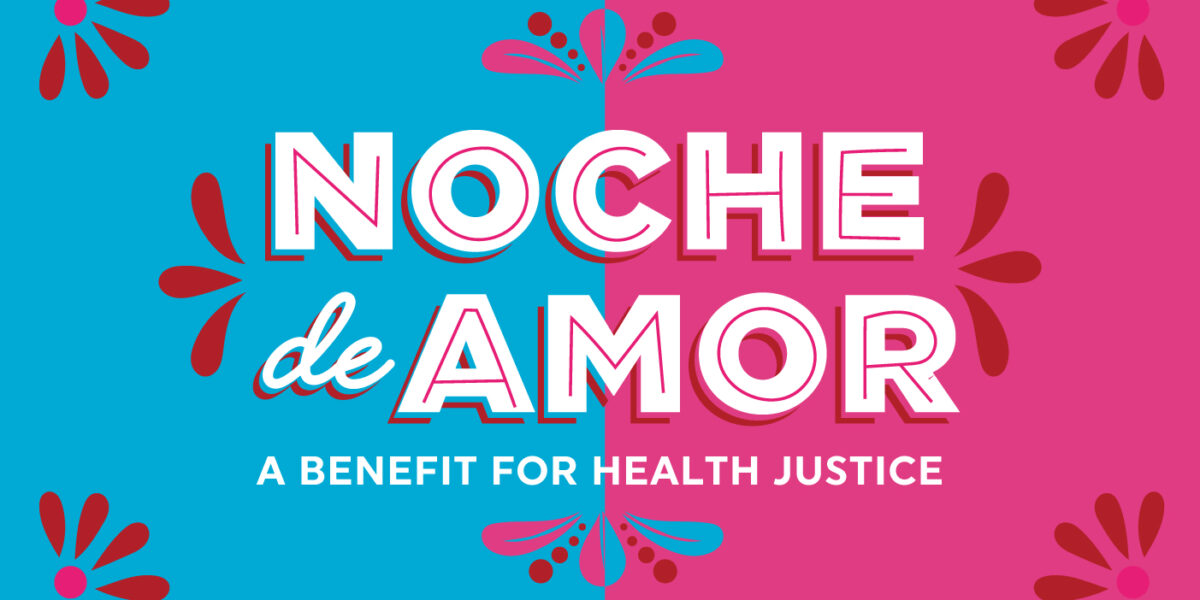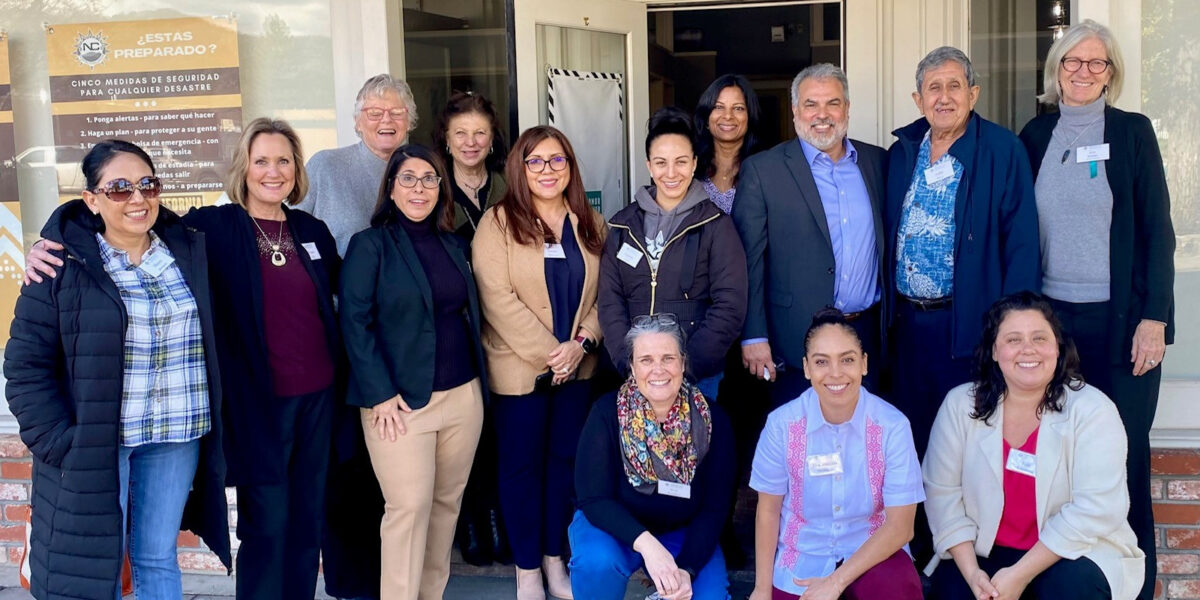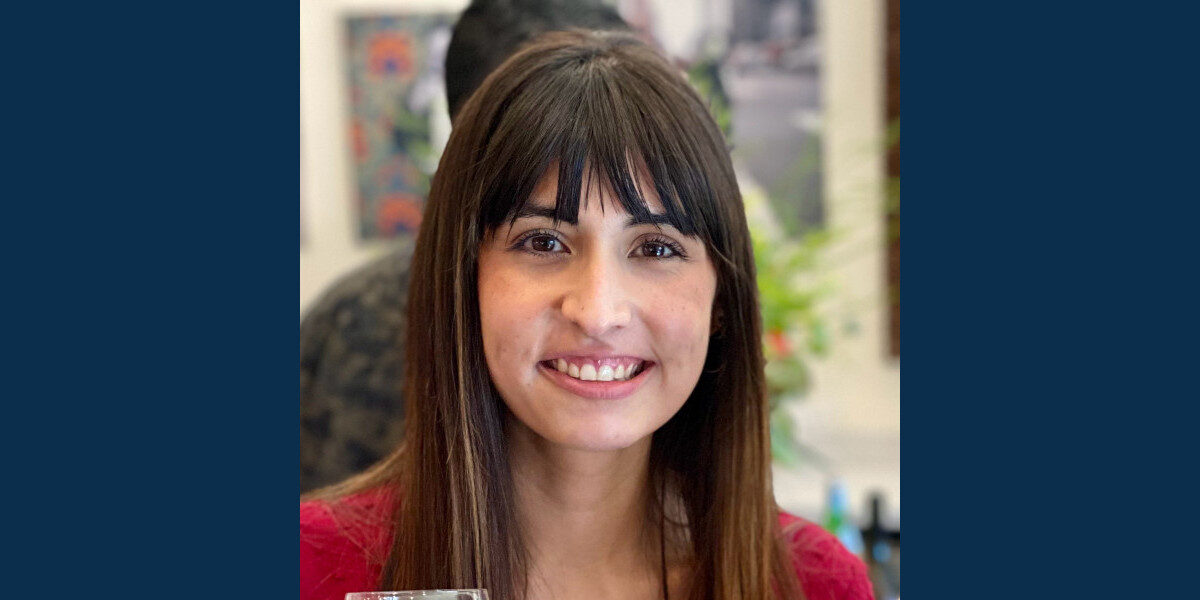

Mental Health Talent Pipeline Spotlight: Meet Jennifer Chavez
Mental Health Talent Pipeline scholarship recipient Jennifer Chavez shared some of her reflections with us.
Jennifer Oseguera Chavez grew up in the Cotati and Rohnert Park area and, before transferring to UC Davis in her junior year, had spent all her life in the region. “I have loved growing up in Sonoma County,” she says. After earning her bachelor’s degree in 2021, with a double major in Spanish and Psychology and a minor in Chicano Studies, Jennifer returned to northern Sonoma County to pursue a career in the mental health field. As she prepares to begin her studies in the fall as a graduate student at USF Santa Rosa, with support from the Healthcare Foundation’s Mental Health Talent Pipeline scholarship program, Jennifer shared some of her reflections on her journey thus far. The following conversation has been lightly edited for length and clarity.
When did you become interested in psychology and the mental health field?
We have to go back to my freshman year at the Santa Rosa JC. I am a first-generation Latina college student. I really didn’t know what to expect but I knew I wanted to go to college. That was my number one goal. Going in, I took a lot of different classes, and I decided to take the psychology class. That one class in my freshman year transformed my whole viewpoint, and basically solidified my career in psychology. I immediately questioned things and took time to digest what I was learning. Why weren’t these topics talked about in my family? I grew up in a Mexican family, raised by a single mom, and a lot of topics are taboo. That fueled my desire to focus on psychology and the mental health field, to advocate for Latinx mental health services and equity and bring awareness to people in the Latinx community about mental health diagnoses and mental health wellbeing.
That led you to work in mental health services. Where are you working currently?
I am working at Turning Point Community Programs, here in Santa Rosa. We serve a dually diagnosed population (with an intellectual disability and a mental health diagnosis), focusing on mental health, resilience, recovery, and relationships, and helping people reintegrate into their communities and develop skills to succeed. I’ve almost finished my first year at Turning Point Community Programs. It has helped me grow tremendously as a professional.
Do you serve bilingual clients?
When I first got there, I believe we only had one bilingual client. Adding me to the team as a bilingual, bicultural staff member has opened up opportunities and access to our Latinx community at my agency, which has brought a lot of fulfillment to me and led me to want to become a bilingual and bicultural mental health clinician. We’re getting more referrals, which is amazing because that shows the need for Latinx clients to access mental health services.
Where are you now with respect to the master’s program? What are you looking forward to?
I am about to enter USF’s MFT [Marriage and Family Therapy] program here at the Santa Rosa campus. The first orientation is this week, actually. I will get to meet my cohort, my peers. I’m excited to meet and work and collaborate with them and share stories—because we all have our own stories and our own expertise and knowledge. I’m really excited to have this opportunity.
“I hadn’t known [USF] had a campus in Santa Rosa. That was something really important to me, to stay local so I could continue working and continue creating a change here.”
Jennifer Chavez, Mental Health Talent Pipeline Scholarship Recipient
How did you decide on USF’s program?
I first heard of the USF Santa Rosa campus from a colleague—his wife graduated from USF Santa Rosa. Our district director at Turning Point Community Programs also graduated from there. I hadn’t known they had a campus in Santa Rosa. That was something really important to me, to stay local so I could continue working and continue creating a change here. What I particularly value [in the USF master’s program in counseling psychology] is their emphasis on social justice. They stress inclusivity and equity—that is something I strive for everyday for my clients, so I want an educational institution that also values and promotes that in the professionals they are helping to create.
Was there someone who particularly inspired or supported you in your career path?
When I transferred to UC Davis in my junior year of college, I took a class on Latinx mental health. The professor, Dr. Monica Torreiro-Casal, basically became my mentor. I took many classes from her, I went to office hours, and we developed a relationship. I actually helped her with her research study focusing on the Latinx population in Sacramento County. She has written me letters of recommendation, offered me professional advice in how to grow, and just been my biggest advocate. She has always believed in me, which has helped me exceed even my own expectations for myself. I believe everyone should have a mentor, someone who supports them and encourages them to reach for the stars, you know?
Is there any advice you might offer someone like yourself who is perhaps becoming interested in pursuing a similar career path?
A lot of things that I have done that have helped me grow as a person have also been scary. I’d say, feel the fear and do it anyway. Apply to that school. Speak up about what you want, about your needs, your goals, your desires. What’s the worst that can happen? You may get a no here and there but you never know how many yeses you’ll also get unless you try. And remember: You belong. That imposter syndrome is really big with me. Sometimes I still wonder, what am I doing here? I have to remind myself and say, Jenny, you have so much to give, so much change to create in this world. The fact is we’re all valuable. So never give up, dream.
Anything else you would like to add?
I want to say how grateful I am to have been selected for the Mental Health Talent Pipeline scholarship. What the Healthcare Foundation is doing supporting Latinx and bilingual and bicultural students is absolutely amazing. I’m honored, and I hope to become an amazing bilingual, bicultural clinician to continue supporting our Latinx community here in Sonoma County. I still can’t believe it! As a first-gen, I never knew these opportunities were out there. So I also want to encourage others to apply for those scholarships—look for opportunities, because you never know what’s out there for us, to help us accomplish our dreams and goals. Especially when it comes to education.

Related News + Stories
Invest in Our Community
Your support is vital to our collective vision of eliminating health inequities in northern Sonoma County.
Donate



